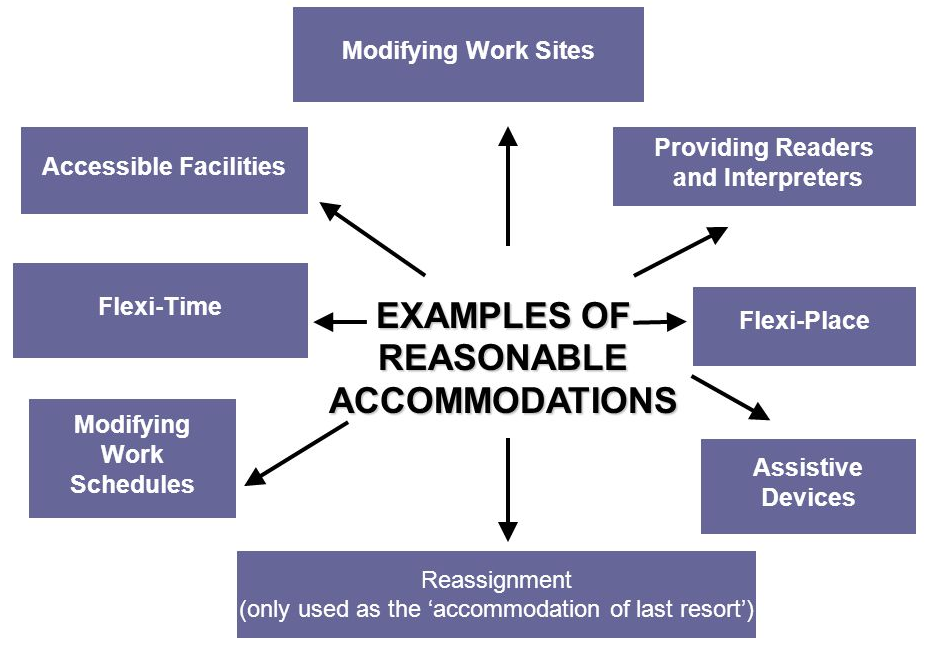Indian Polity
Principle of Reasonable Accommodation
- 21 Mar 2022
- 6 min read
For Prelims: International Labour Organisation (ILO), Supreme Court, Hijab, Fundamental Rights, Cases Related to Freedom of Religion, Rights of People with Disabilities Act, 2016.
For Mains: Principle of ‘Reasonable Accommodation’. Fundamental Rights, Judiciary, Government Policies & Interventions, Women's Issues, Cases Related to Freedom of Religion.
Why in News?
Recently, in the context of hijab controversy, the Karnataka High Court ruled in favour of the State’s circular that required students in educational institutions should only wear prescribed uniforms.
- The decision effectively upheld the denial of entry to students wearing the hijab.
- The court rejected an argument in support of permitting Muslim girls wearing head-scarves that was based on the principle of ‘reasonable accommodation’.
What is the Principle of ‘Reasonable Accommodation’?
- About: ‘Reasonable accommodation’ is a principle that promotes equality, enables the grant of positive rights and prevents discrimination based on disability, health condition or personal belief.
- Its use is primarily in the disability rights sector.
- It captures the positive obligation of the State and private parties to provide additional support to persons with disabilities to facilitate their full and effective participation in society.
- For a person with disability, the constitutionally guaranteed fundamental rights to equality (Article 14), the six freedoms (Article 19) and the right to life (Article 21) will ring hollow if they are not given this additional support that helps make these rights real and meaningful for them.
- Article 2 of UN Convention on the Rights of People with Disabilities (UNCRPD): It is necessary and appropriate modification and adjustments not imposing a disproportionate or undue burden to ensure to persons with disabilities the enjoyment or exercise on an equal basis with others of all human rights and fundamental freedoms.
International Labour Organisation (ILO) Case Study
- In 2016, the ILO came out with a practical guide on promoting diversity and inclusion through workplace adjustments.
- The need for workplace accommodation may arise in a variety of situations, but four categories of workers were chosen for the guide:
- Workers with disabilities,
- Workers living with HIV and AIDS,
- Pregnant workers and those with family responsibilities, and
- Workers who hold a particular religion or belief.
- These categories of workers come across different kinds of barriers at work. These may result in either loss of employment or lack of access to employment.
- The provision of reasonable accommodation plays a major role in addressing these barriers and thus contributes to greater workplace equality, diversity and inclusion.
- A modified working environment, shortened or staggered working hours, additional support from supervisory staff and reduced work commitments are ways in which accommodation can be made.
PYQ
International Labour Organisation’s Conventions 138 and 182 are related to (2018)
(a) Child Labour
(b) Adaptation of agricultural practices to global climate change
(c) Regulation of food prices and food security
(d) Gender parity at the workplace
Ans: (a)
What is the Legal position on this in India?
- In India, the Rights of People with Disabilities Act, 2016, defines ‘reasonable accommodation’ as “necessary and appropriate modification and adjustments, without imposing a disproportionate or undue burden in a particular case, to ensure to persons with disabilities the enjoyment or exercise of rights equally with others”.
- The definition of ‘discrimination’ in Section 2(h) includes ‘denial of reasonable accommodation’.
- Jeeja Ghosh and Another v. Union of India and Others (2016): The Supreme Court, held that Equality not only implies preventing discrimination but goes beyond in remedying discrimination against groups suffering systematic discrimination in society.
- In concrete terms, it means embracing the notion of positive rights, affirmative action and reasonable accommodation.”
- Vikash Kumar v. UPSC (2021): The court ruled that benchmark disability, that is a specified disability to the extent of 40%, is related only to special reservation for the disabled in employment, but it need not be a restriction for other kinds of accommodation.
- It also said failure to provide reasonable accommodation amounts to discrimination.
PYQ
India is home to lakhs of persons with disabilities. What are the benefits available to them under the law? (2011)
1. Free schooling till the age of 18 years in government run schools.
2. Preferential allotment of land for setting up business.
3. Ramps in public buildings.
Which of the statements given above is/are correct?
(a) 1 only
(b) 2 and 3 only
(c) 1 and 3 only
(d) 1, 2 and 3
Ans: (d)







